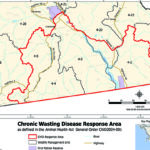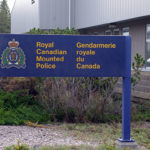Home »

Raccoons observed in Cranbrook and Kimberley
Raccoons can be found in a wide variety of habitats including forests, marshes, and farmland. Highly adaptable, raccoons can also thrive in the densest urban centres. Raccoons are normally shy, nocturnal animals but can easily become habituated to humans and our pets.
When raccoons find food in our yards and communities, they quickly learn to associate humans with an easy meal.
Food-conditioned and human habituated raccoons become bolder around humans and when this happens, conflict often ensues. Raccoons can cause significant damage to gardens, buildings, crops, and livestock in their search for food and denning sites. They can also carry a roundworm parasite that is potentially dangerous to humans and our pets through contact with raccoon feces. It is better to keep raccoons wild by preventing their access to food and shelter on your property.
WildSafeBC is sharing with the public a few ways to manage your attractants to ensure they do not become comfortable in your yard.
- Keep all garbage securely stored until the day of collection. Placing garbage at the curb before collection day is just inviting trouble with wildlife.
- Feed pets indoors, or if fed outdoors, take in any feed that is not immediately eaten.
- Take birdfeeders down until winter. Birdfeeders can attract raccoons. If raccoons are present in the winter, take birdfeeders in at night.
- Keep pet doors locked at night. Raccoons will enter homes if they feel they can get a meal on the other side of a pet door.
- Never feed raccoons even though you may think you are helping them out. Raccoons have evolved to live without our help and feeding just leads to conflict.
- Keep barbecue grills and grease traps clean as raccoons will quickly key in on these high calorie food sources.
Raccoons can become aggressive towards humans if cornered or handled. Given their small size, they do not pose a serious threat but are capable of inflicting minor injuries. If approached by a raccoon, scare it away by yelling, lapping or making noise. Never attempt to approach a raccoon. Like all wildlife, raccoons can act aggressively if they feel threatened.
Call the Conservation Officer Service reporting line (1-877-952-7277) to report any raccoons acting aggressively.
Photo submitted by WildSafeBC
Submitted by Danica Roussy, Kimberley/Cranbrook WildSafeBC Community Coordinator







